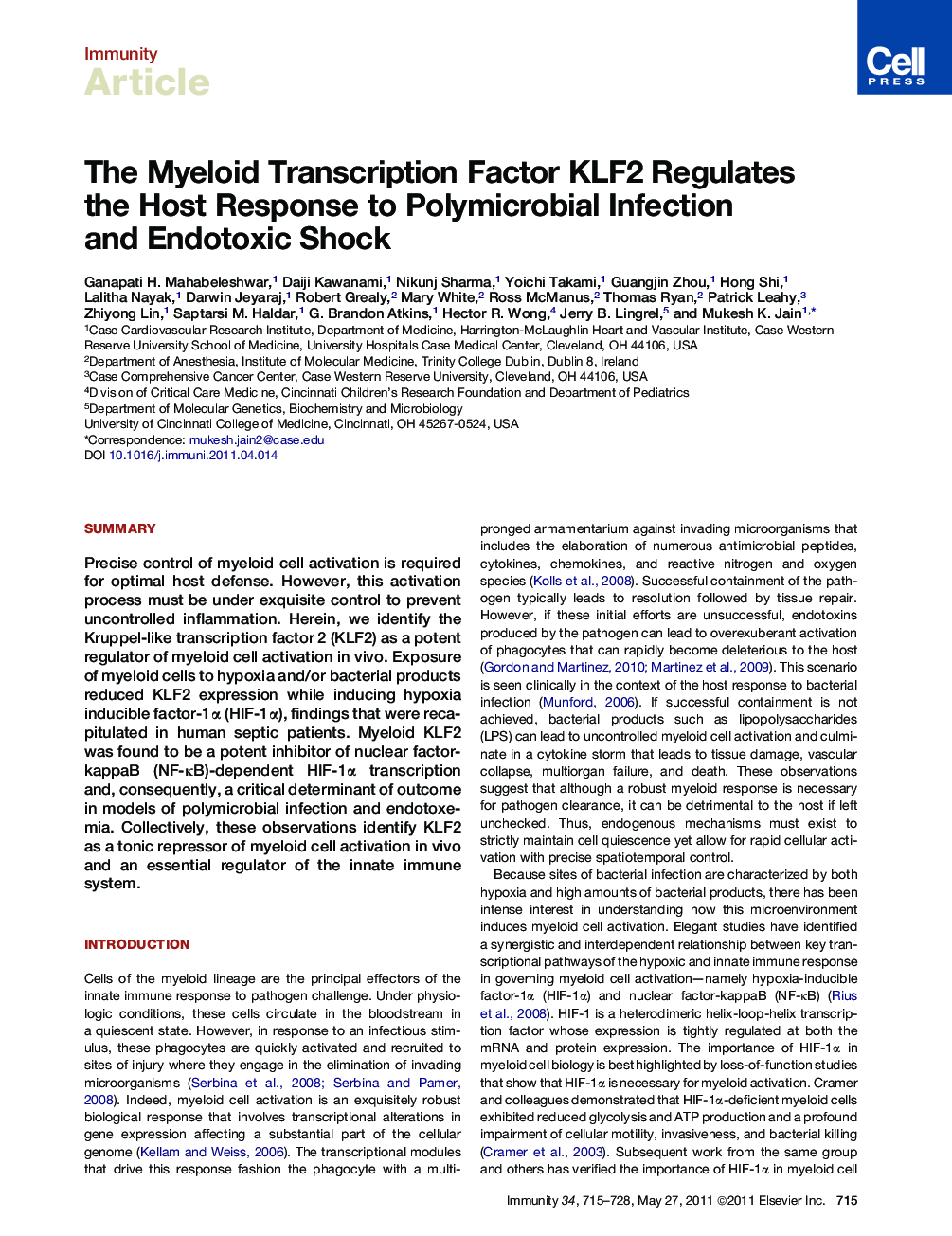| Article ID | Journal | Published Year | Pages | File Type |
|---|---|---|---|---|
| 3353395 | Immunity | 2011 | 14 Pages |
SummaryPrecise control of myeloid cell activation is required for optimal host defense. However, this activation process must be under exquisite control to prevent uncontrolled inflammation. Herein, we identify the Kruppel-like transcription factor 2 (KLF2) as a potent regulator of myeloid cell activation in vivo. Exposure of myeloid cells to hypoxia and/or bacterial products reduced KLF2 expression while inducing hypoxia inducible factor-1α (HIF-1α), findings that were recapitulated in human septic patients. Myeloid KLF2 was found to be a potent inhibitor of nuclear factor-kappaB (NF-κB)-dependent HIF-1α transcription and, consequently, a critical determinant of outcome in models of polymicrobial infection and endotoxemia. Collectively, these observations identify KLF2 as a tonic repressor of myeloid cell activation in vivo and an essential regulator of the innate immune system.
Graphical AbstractFigure optionsDownload full-size imageDownload high-quality image (428 K)Download as PowerPoint slideHighlights► KLF2 deficiency confers a proinflammatory phenotype to myeloid cells ► Myeloid KLF2 deficiency renders animals resistant to polymicrobial infection ► Myeloid KLF2 deficiency renders animals susceptible to endotoxic shock ► KLF2 negatively regulates the NF-κB-HIF-1α axis in macrophages
